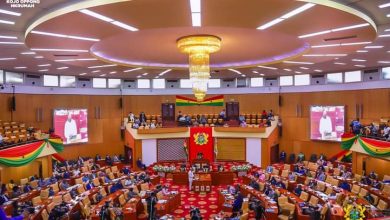Togo’s President Faure Gnassingbe has been re-elected for a fourth term, the national electoral commission has declared, extending his 15-year rule and a family dynasty that began when his father took power in a 1967 coup.
The incumbent leader took 72 percent of the vote share in the first round of the presidential election, according to preliminary results from the commission on Monday, ahead of his closest rival and former prime minister Agbeyome Kodjo with 18 percent.
The final results are expected to be announced by the Supreme Court in coming days.
If confirmed, the result gives Gnassingbe five more years in power, a blow for opposition protesters who have taken to the streets in recent years, calling for him to step down.
Gnassingbe has led the country of eight million people since taking over in 2005 following the death of his father Gnassingbe Eyadema, who ruled the country for 38 years.
In May, he oversaw an overhaul of the constitution that allowed him to run this year – and potentially remain in office until 2030.
Gilbert Barawa, minister of public functions and a strong supporter of the president, described the result as “an unprecedented score” for the president, who was elected with 58 percent of the vote five years ago.
Hours before the official results were announced, Kodjo, who was prime minister under Gnassingbe’s father, had declared his own victory as “democratically elected president” with between 57 and 61 percent of the vote.
He promised to form his own “inclusive government in the coming days”, accusing authorities of using ballot stuffing and fake polling stations to skew the results in the incumbent’s favour.
Challenges ahead
The authorities banned hundreds of local observers from monitoring Saturday’s election and cancelled the system of electronic security at the last moment.
Some 300 international observers were deployed, mainly from the Economic Community of West African States (ECOWAS) and the African Union, with many African states supporting the incumbent.
Six opposition challengers had suggested they would unite against Gnassingbe if he failed to win an outright majority and the election had proceeded to a second round.
In 2017 and 2018, Togolese authorities faced major protests demanding an end to the family’s five-decade rule.
Some political observers have expressed concern that a Gnassingbe win could spark fresh protests, though the streets of the oceanside capital Lome were calm in the early hours of Monday morning immediately after the vote.
Togo is the tenth-poorest country in the world, according to the International Monetary Fund.
Gnassingbe has long promised to boost economic development and the country has seen annual economic growth of around 5 percent in recent years, driven by investment in energy and transport.
But grinding poverty and labour strikes are const





